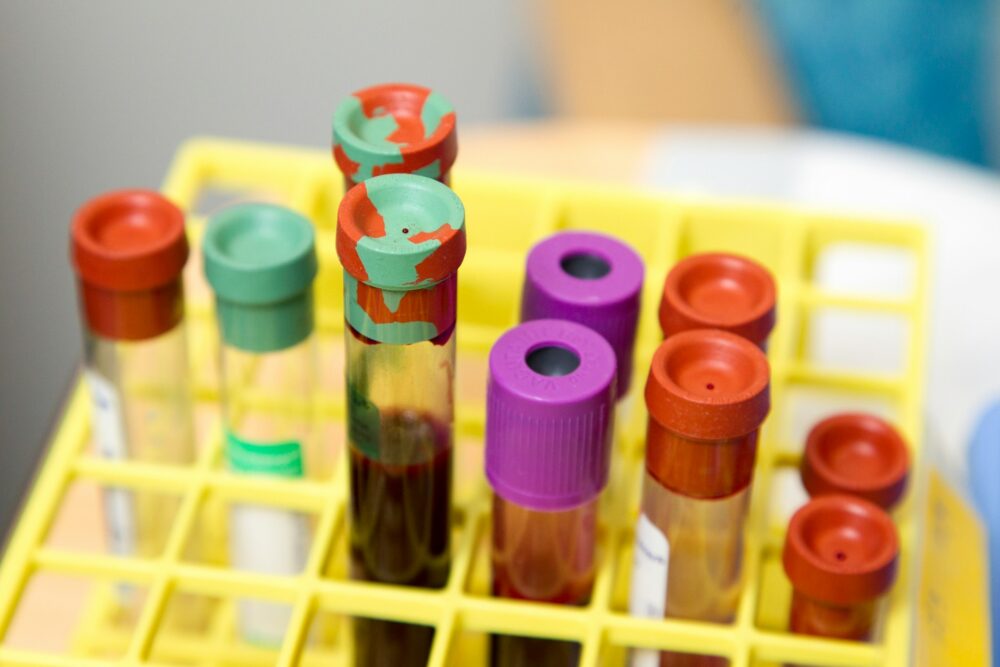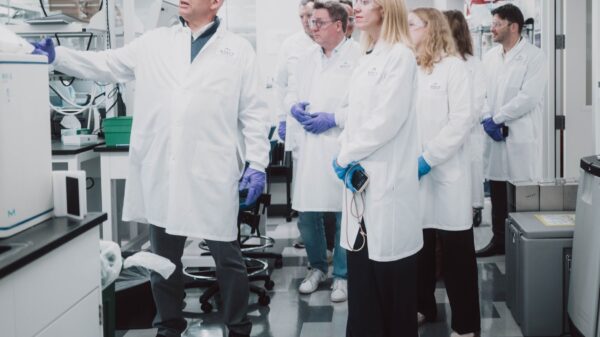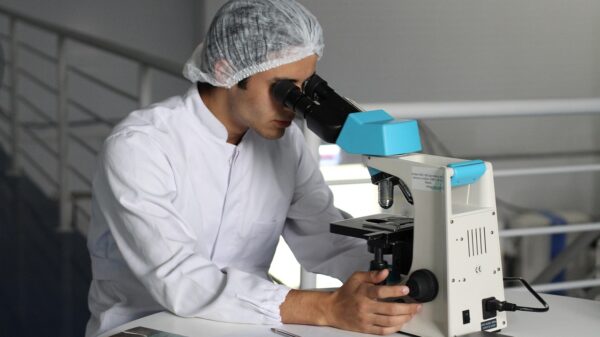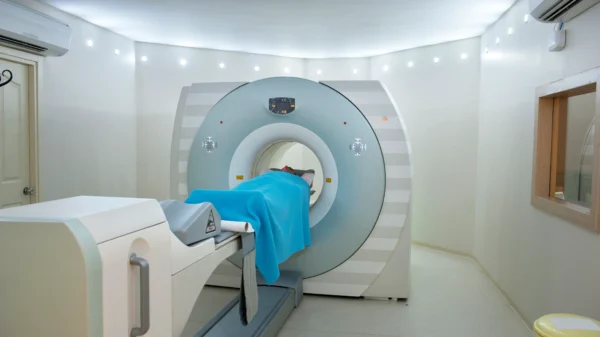Painful tumour biopsies could be a thing of the past after a new technology involving a simple blood test hits the market.
The technology is called Luminspheres, and it’s from UK-based startup, Chromition. It uses flourescent nanotechnology, which are tiny, sensitive particles that can detect biomarkers in blood.
Researchers indicate that these particles could help doctors create personalized plans for each patient, which would offer a profile for their cancer. This would therefore mean faster diagnosis and an increased survival chance.
Additionally, the company has received support from the Centre of Expertise in Advanced Materials and Sustainability (CEAMS) and funding from Innovate UK.
Chromition’s new system features an continuously operating automated scanner that processes samples every 30 minutes.
“We are working towards making this technology accessible within the next five to ten years,” said Mark McCairn, CEO and co-founder of Chromition.
“While our initial focus is on breast cancer – the most common cancer in the UK, with around 55,000 people diagnosed each year – Luminspheres has the potential to detect up to 90 per cent of all cancers.”
The Digital Rapid Autonomous Cancer Screening (DRACS) program, backed by £700,000 (roughly CAD$1.2 million) in Innovate UK funding, is already nine months into development. Meanwhile, researchers at the University of Manchester are fine-tuning the technology with cutting-edge testing facilities for real-world applications. Once they complete the validation phase, the technology could be ready for clinical trials by 2030.
“By accelerating the diagnostic process, it could enable earlier treatment and significantly improve outcomes for thousands of patients,” said Levi Rickell, managing director of the Rochdale Development Agency.
Read more: Breath Diagnostics pioneers novel lung cancer breath test
Read more: Breath Diagnostics takes aim at lung cancer with One Breath
Demand for cancer diagnosis on steady incline
The global cancer diagnostics market is expanding rapidly, with a projected value of approximately USD$178.26 billion by 2033. It’s also growing at a compound annual growth rate (CAGR) of 5.91 per cent, according to Precedence Research.
This growth is driven by several factors, including the rising prevalence of cancer, technological advancements in diagnostic methods, an aging global population, and improvements in healthcare infrastructure, especially in emerging markets.
Furthermore, as cancer cases continue to increase, the demand for diagnostic services is expected to rise accordingly. Innovations in imaging, biomarker testing, and liquid biopsy techniques are also improving diagnostic accuracy and accessibility.
Additionally, the aging population worldwide is contributing to higher cancer incidence rates, further boosting market growth. Enhanced healthcare systems are also making it easier for more people to access diagnostic services, particularly in developing regions.
In addition, several companies are developing advanced technologies for early cancer diagnosis, each focusing on specific cancer types.
Amadix is targeting pancreatic cancer with its PancreaDix test, a non-invasive blood test that detects the associated genetic biomarkers. This test offers an alternative to traditional diagnostic methods and aims to improve early detection.
Meanwhile, California-based OncoCyte Corporation (NASDAQ: OCX) is working on brain cancer detection with its DetermaCNI liquid biopsy. This helps identity genetic mutations in brain tumours. This technology provides molecular insights that could enhance the accuracy of brain cancer diagnoses and guide personalized treatment plans.
For lung cancer, Breath Diagnostics has developed OneBreath, a patented breath analysis system.
OneBreath uses non-invasive technology to detect lung cancer with high sensitivity and specificity, demonstrating promising results in clinical trials. These companies highlight the innovative approaches driving progress in cancer diagnostics, offering new hope for early detection and treatment.
.
joseph@mugglehead.com













